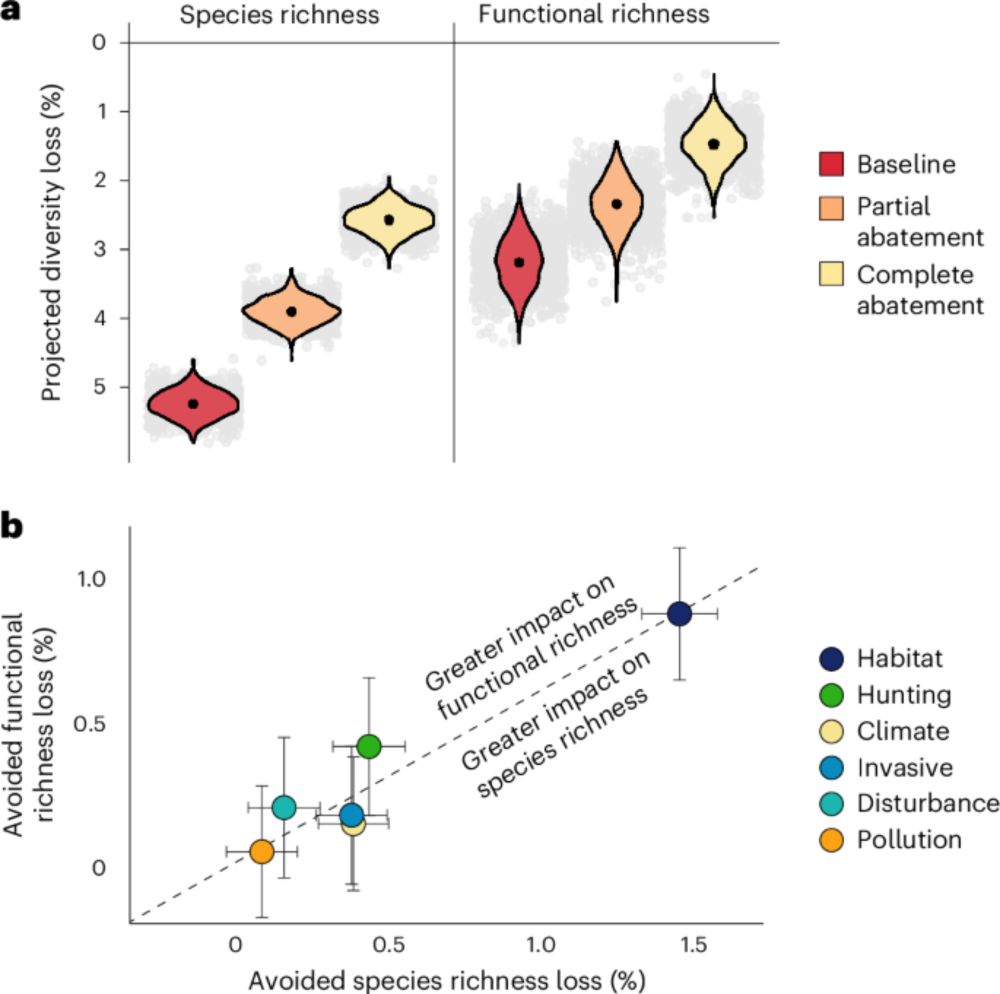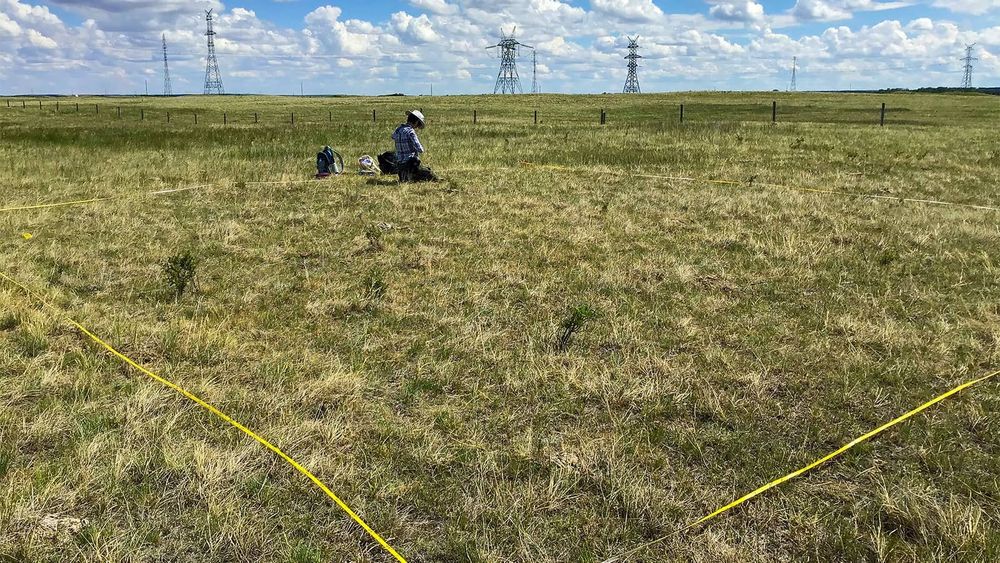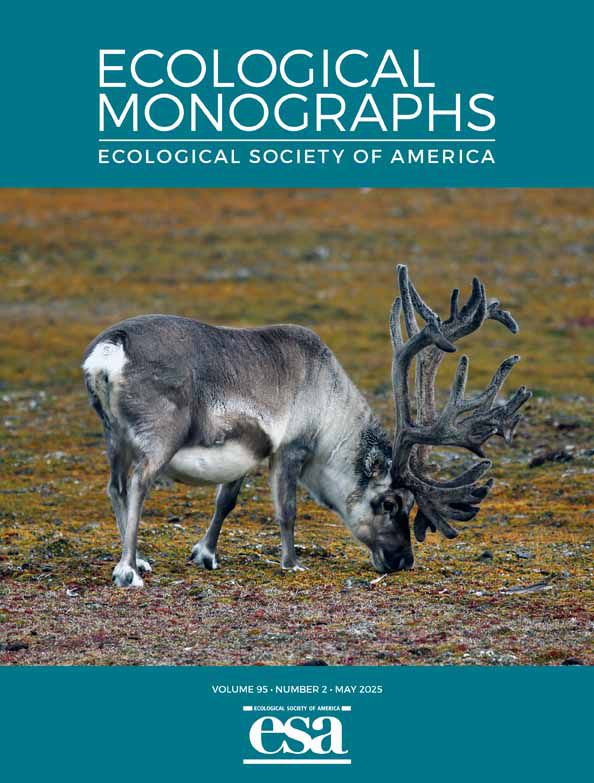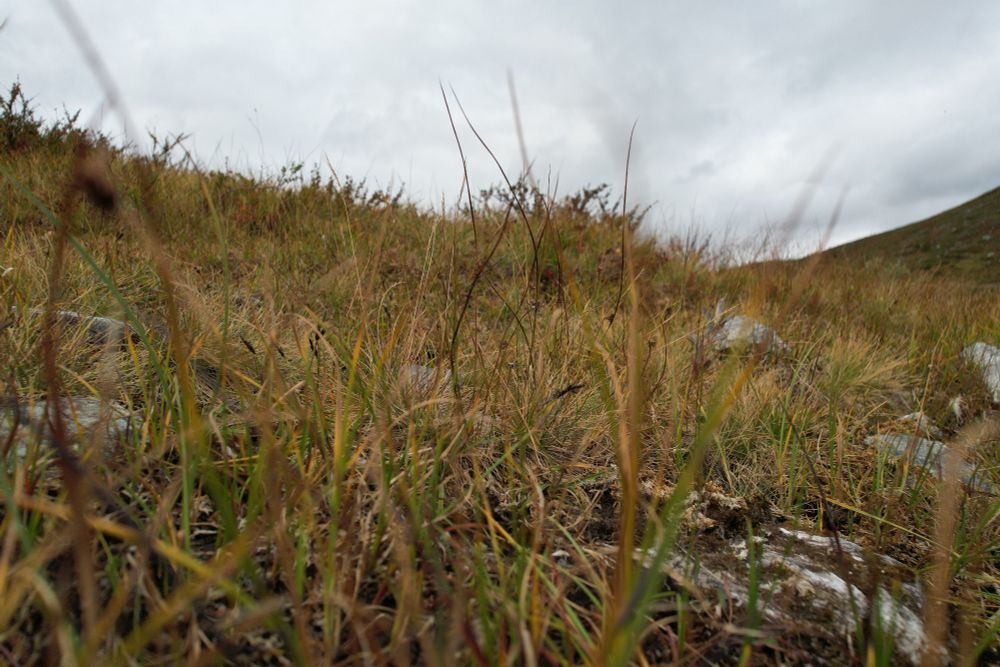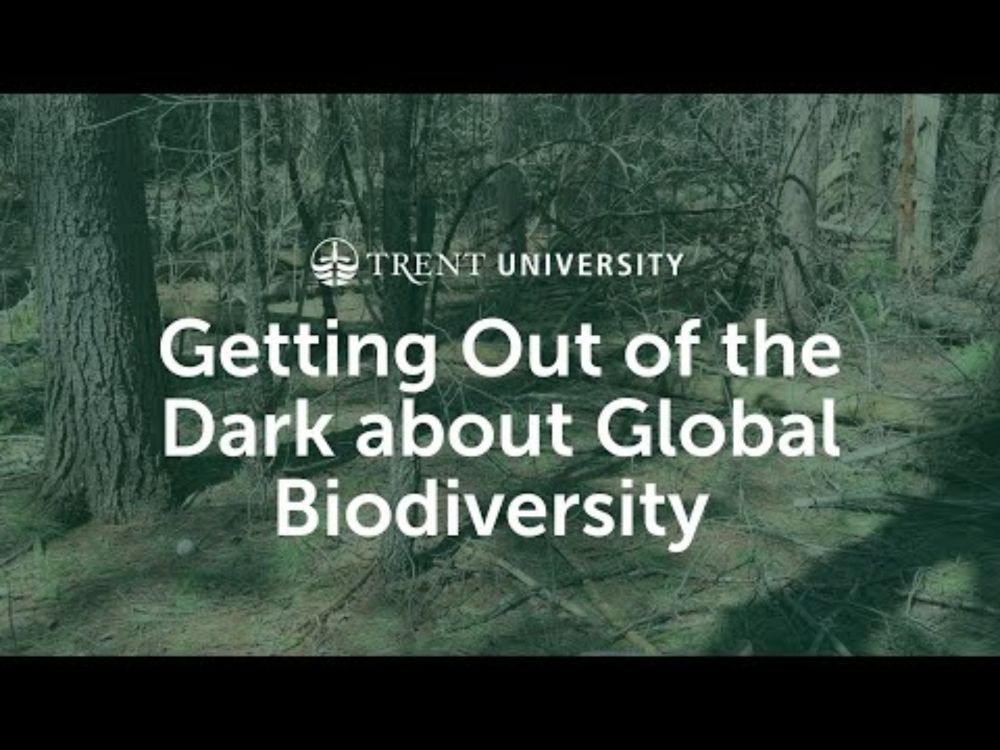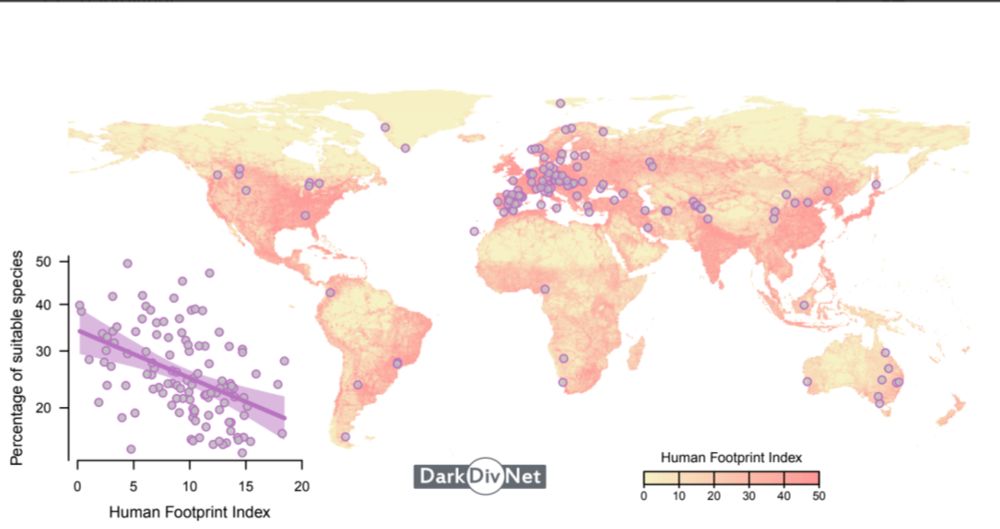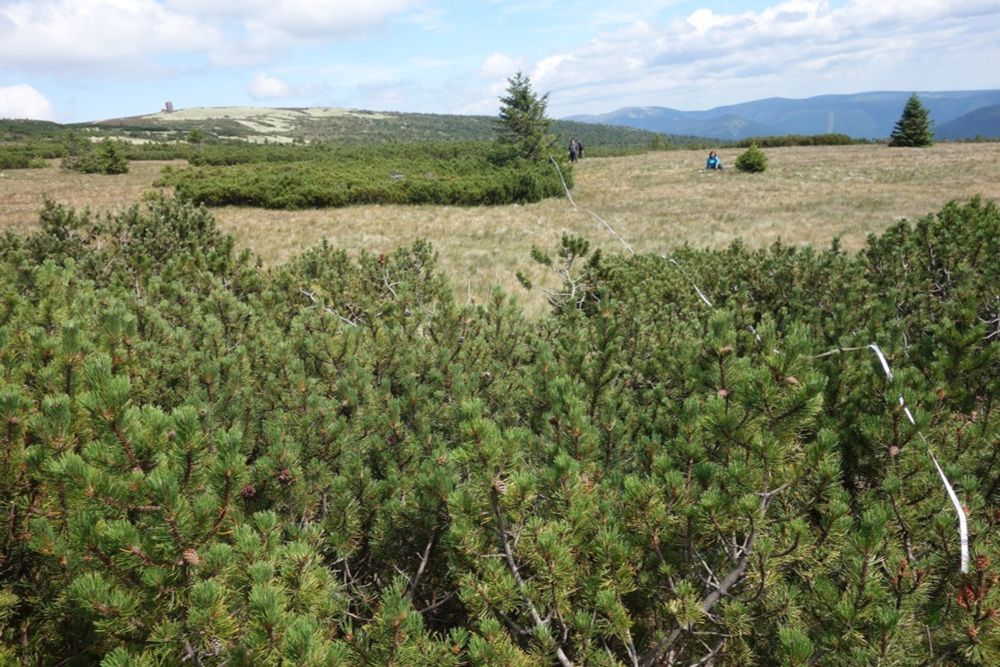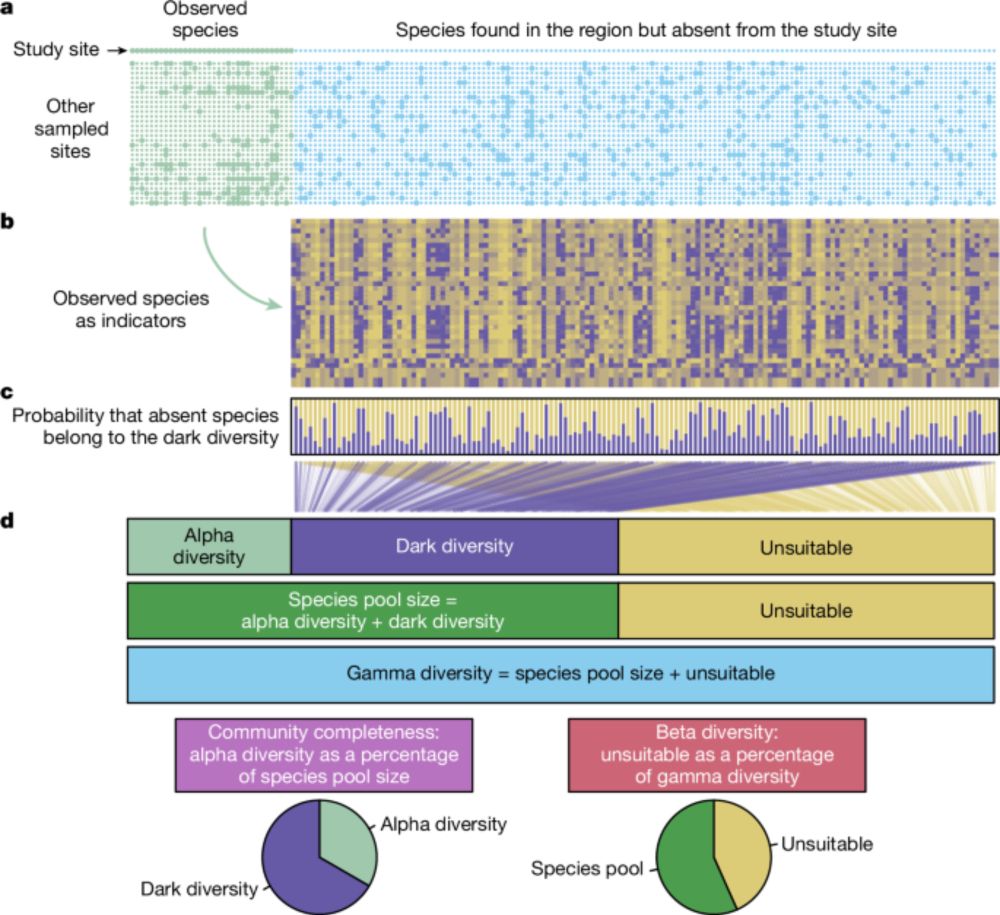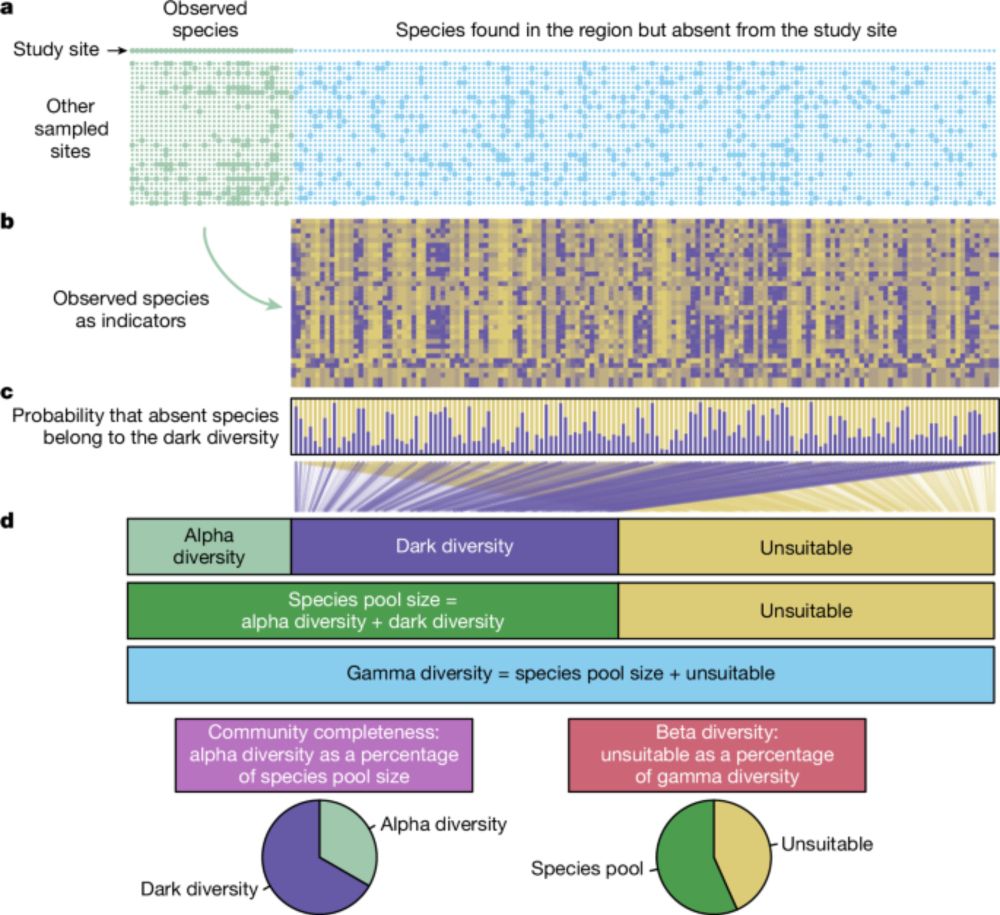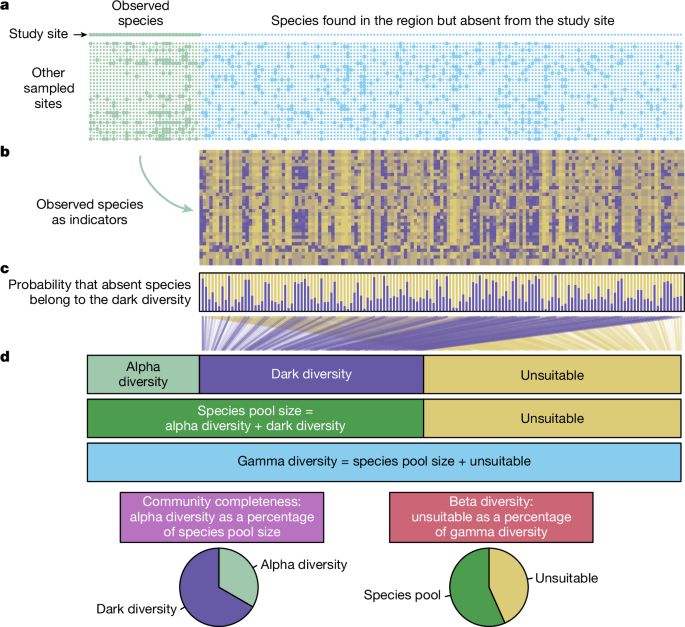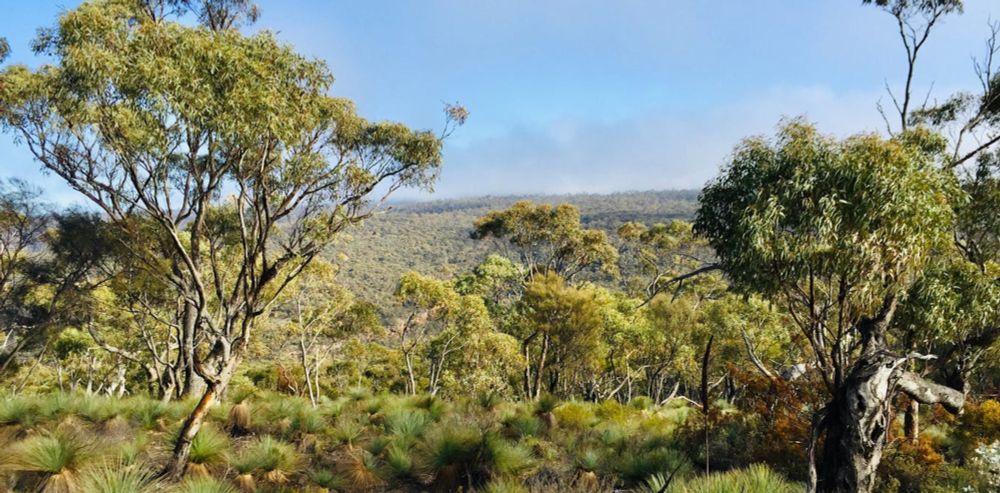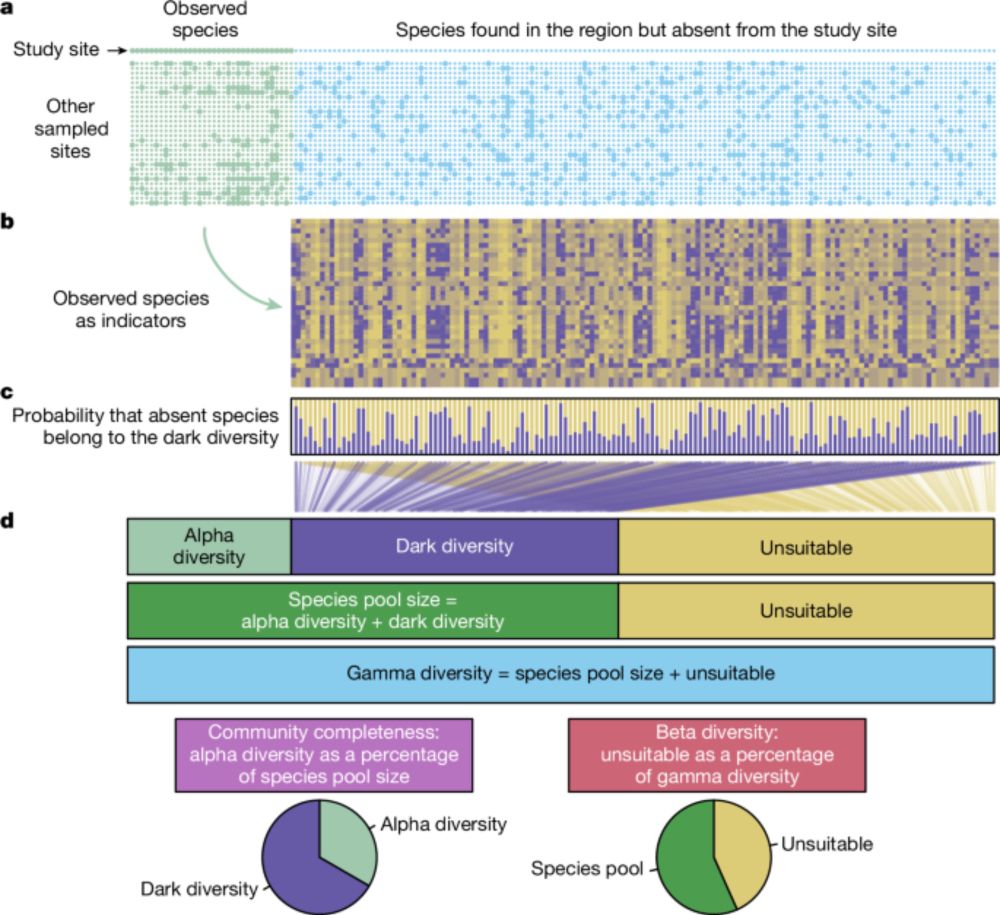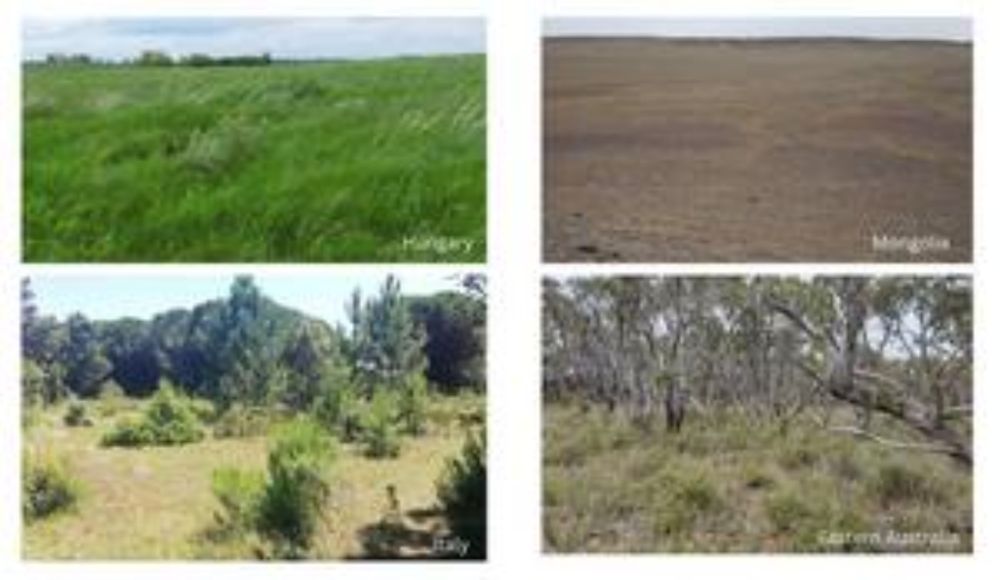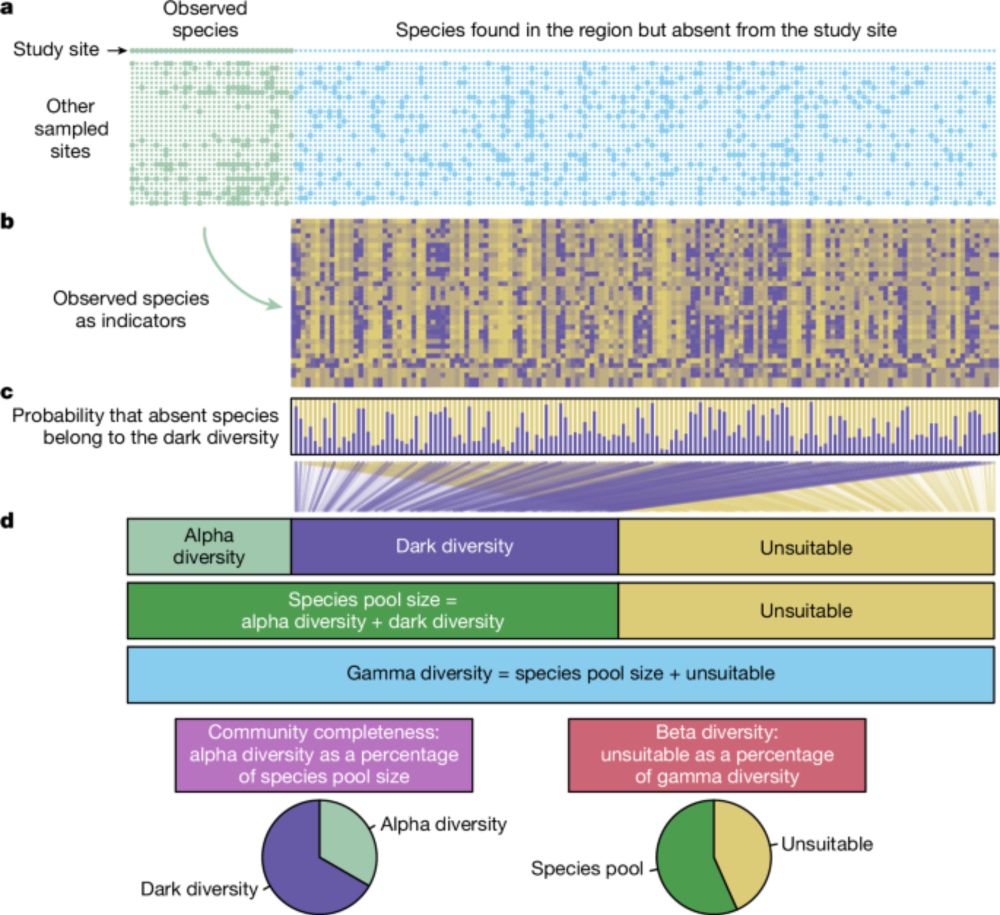After six years, Aleš, Eva, and @mariekonecna.bsky.social resampled their #DarkDivNet core plots in Novohradské hory. Relevés in pairs of mesic meadows, beech forests, and waterlogged spruce forests were done.
24.07.2025 07:26 — 👍 4 🔁 1 💬 1 📌 0
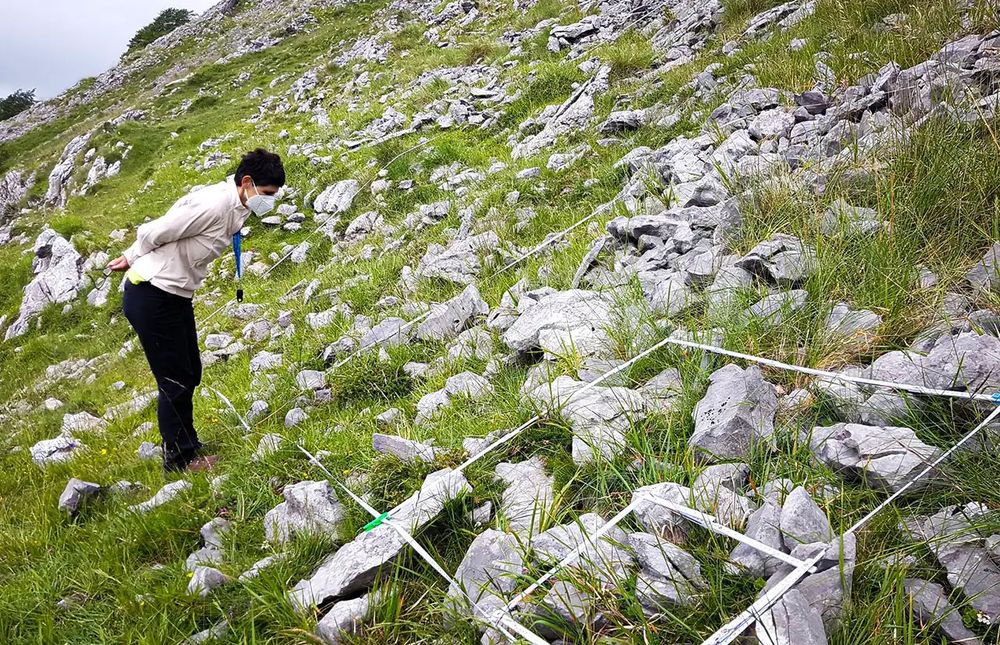
Invisible Loss: How Cities Empty Forests Afar
Even protected forests may be losing biodiversity due to human activity far away. A global study reveals the hidden erosion of nature’s potential.
Even remote forests aren’t safe. New research shows human activity reduces biodiversity far beyond city limits. #BiodiversityLoss #DarkDiversity #ConservationScience
19.05.2025 03:00 — 👍 1 🔁 1 💬 0 📌 0
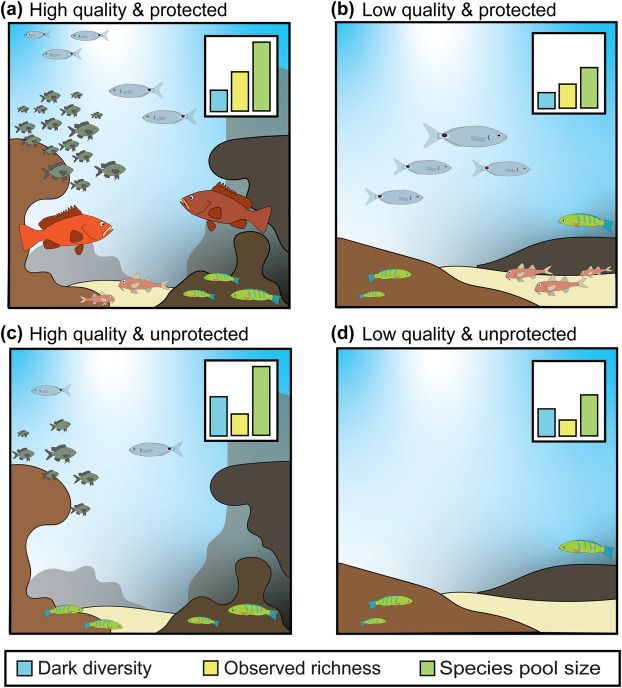
Using dark diversity to disentangle the effects of protection and habitat quality on species diversity across the Mediterranean Sea
* A new paper in Biol Cons by Tal Gavriel, Jonathan Belmaker and others www.sciencedirect.com/science/arti...
28.04.2025 06:54 — 👍 1 🔁 0 💬 0 📌 0
YouTube video by Trent University
Getting Out of the Dark about Global Biodiversity
youtu.be/_sK4EAz_E6s?...
www.trentu.ca/news/story/4...
27.04.2025 10:11 — 👍 2 🔁 1 💬 0 📌 0
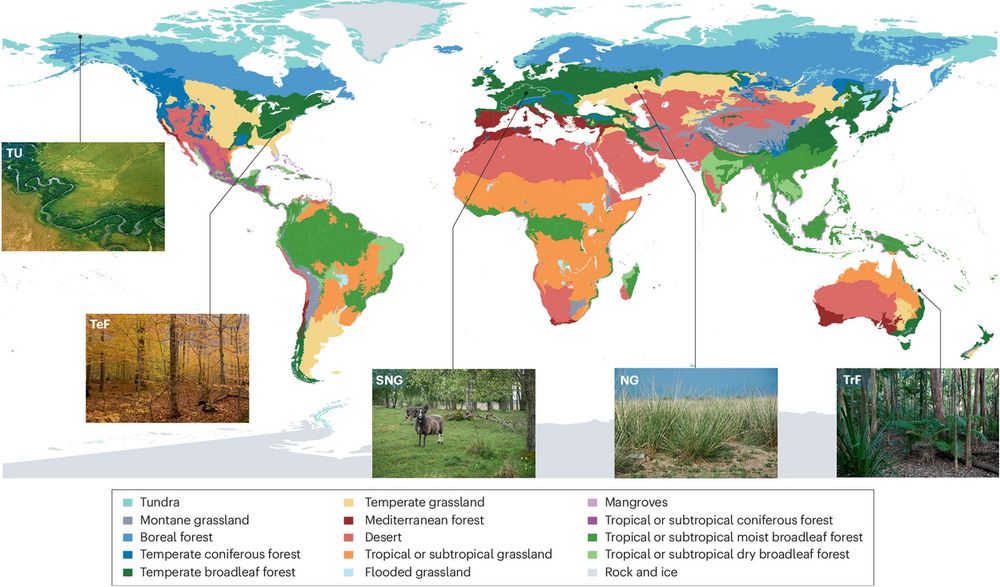
Map showing mycorrhizal profiles of selected ecoregions
April issue: Perspective led by Mari Moora describing how plant reliance on their mycorrhizal symbionts varies across ecological scales 🧪🌎
Web link: go.nature.com/4h1Rpre
Readcube: rdcu.be/eh0uC
16.04.2025 14:10 — 👍 34 🔁 13 💬 0 📌 0
Super happy to be coauthor of this prestigious paper from #darkdivnet under the lead of Meelis Partel! Huge congrats to all coauthors.
07.04.2025 07:33 — 👍 2 🔁 1 💬 0 📌 0
Extremely excited to be part of this collaborative effort led by Meelis Pärtel and @macroecologyut.bsky.social
03.04.2025 04:57 — 👍 4 🔁 3 💬 0 📌 0
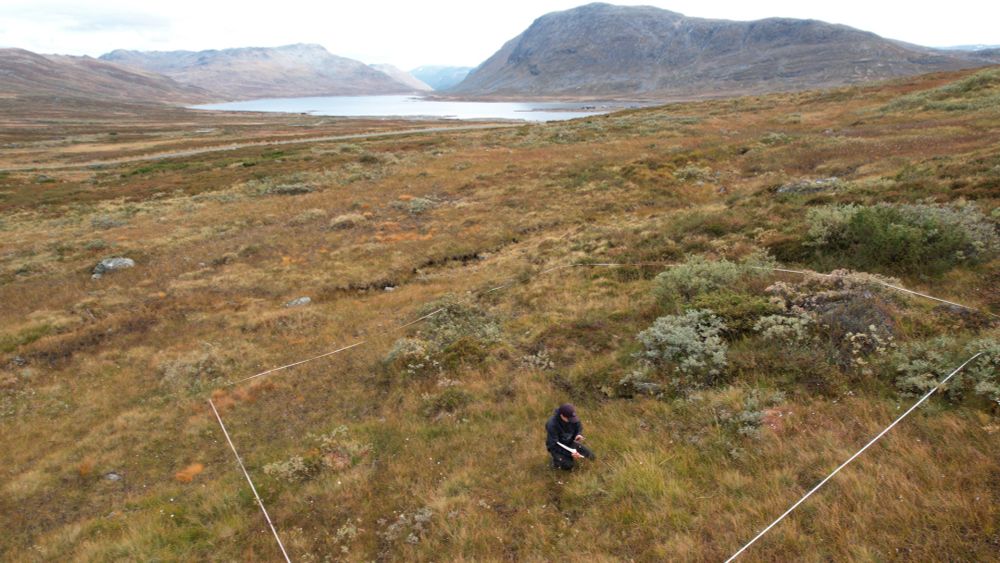
Dark diversity reveals global impoverishment of natural vegetation
Nature study shows that the potential occurrence of plant species is significantly higher
New @nature.com study: the negative effect of human activities on wildlife biodiversity may be notable hundreds of kilometres away ⚠️
For the study, @ufz.de's and iDiv's @lottekorell.bsky.social recorded plant species and so-called dark diversity in the Lüneburg Heath.
www.idiv.de/nature-study...
04.04.2025 10:04 — 👍 25 🔁 13 💬 0 📌 1
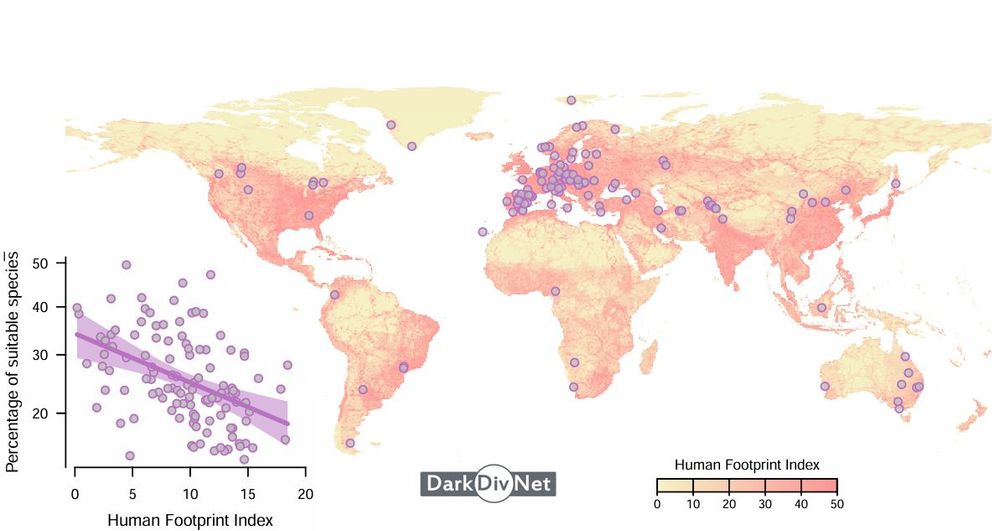
Map from the article Pärtel et al. 2025, Nature.
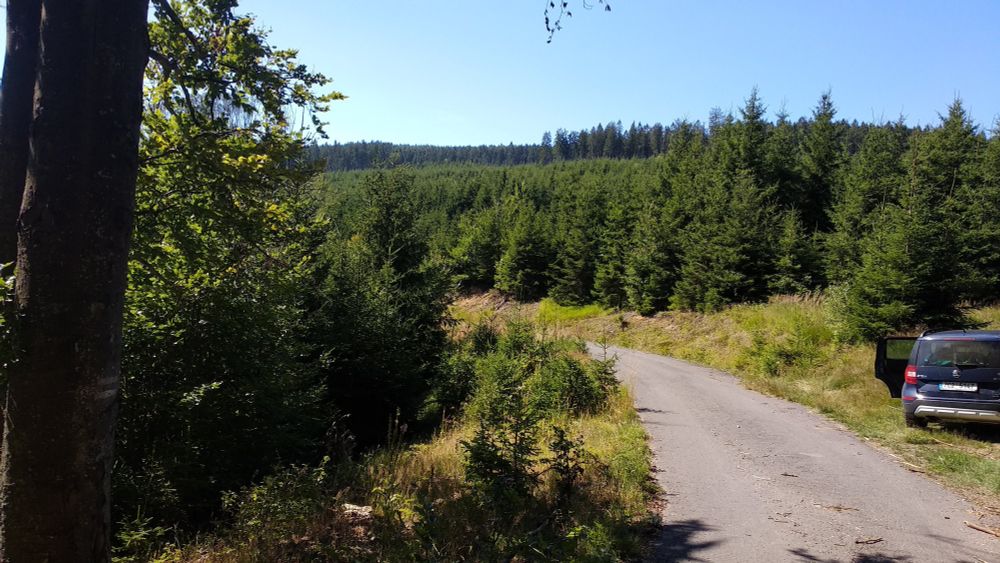
Data sampling. Photos by Marie.
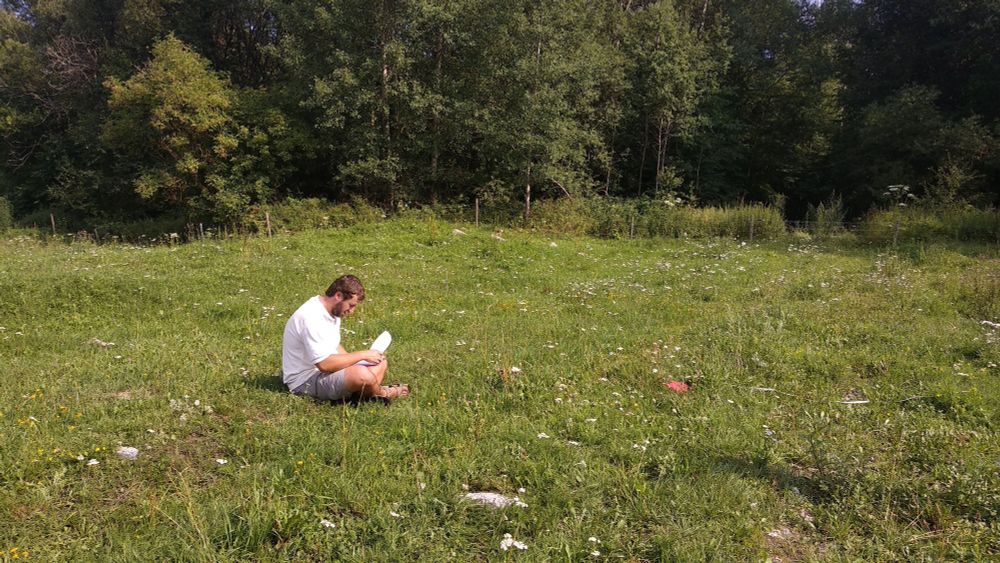
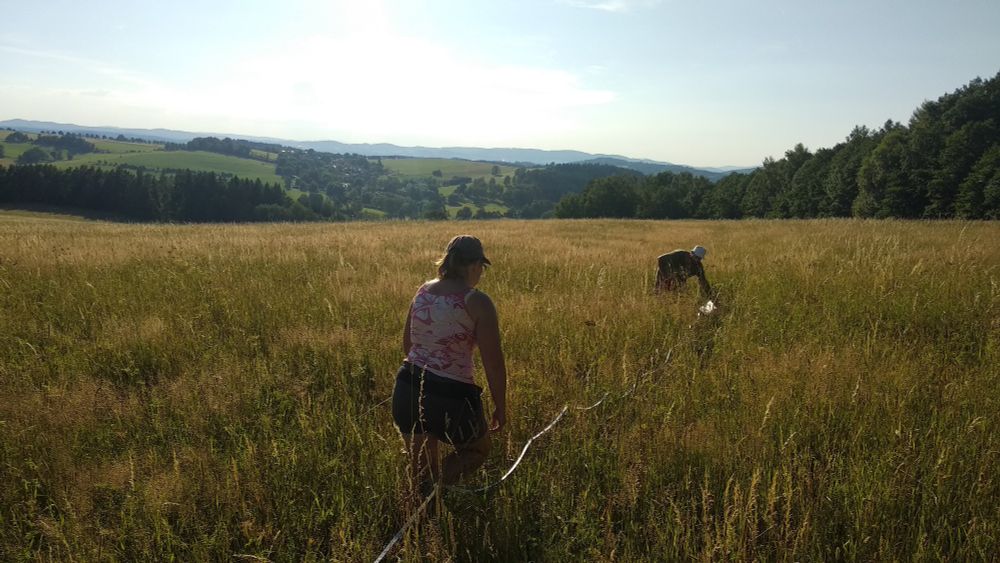
New global study of dark diversity by #DarkDivNet led by Meelis Pärtel, where Aleš, Maruška, and Eva are co-authors with the dataset from Novohradské Hory, is now out in
@nature.com: www.nature.com/articles/s41...
02.04.2025 15:21 — 👍 16 🔁 6 💬 0 📌 2
#Biodiversity has many facets - some might be less apparent, such as the absence of species in locations that would normally be suitable for them. Important reminder that human activity impacts the biosphere in many ways!
Happy to have contributed to the 2nd northernmost dataset in this study :)
🌐🌿☘️
03.04.2025 06:35 — 👍 22 🔁 5 💬 1 📌 0
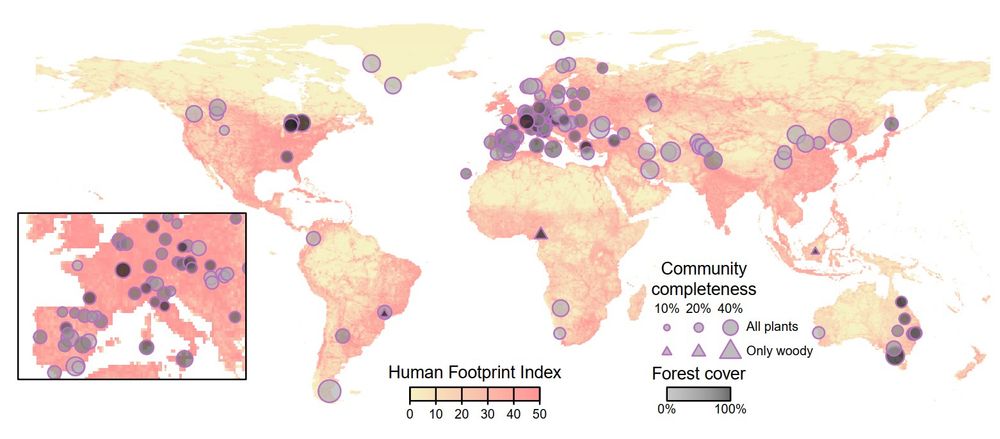
🌿 The first article of our DarkDivNet consortium, led by Meelis Pärtel, has been published in Nature. Our dataset from 5500 sites in 119 world regions, collected specially for this purpose, shows that plant diversity is negatively affected not only by direct human impact such as local disturbance.
02.04.2025 19:48 — 👍 45 🔁 22 💬 1 📌 3
The first paper from #darkdivnet is out now! Huge thank you to all our >200 co-authors who helped to reveal dark diversity in different parts of the world! www.nature.com/articles/s41...
03.04.2025 06:41 — 👍 18 🔁 12 💬 1 📌 3
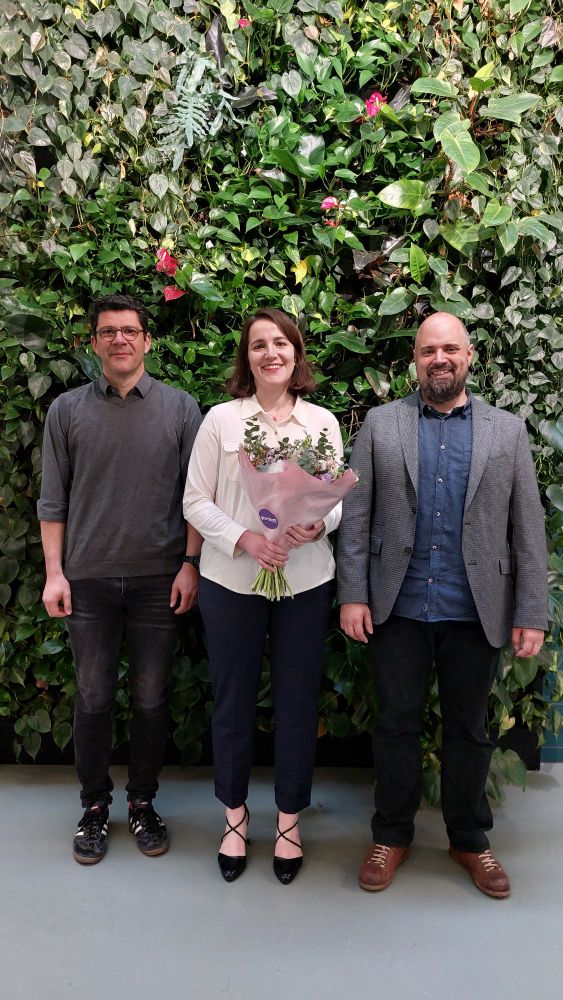
We're very proud of our workgroup member @e-beccari.bsky.social who received her PhD degree last week! Thank you to the opponent @biogeokreft.bsky.social who helped to lead an interesting discussion, and to Eleonora's supervisor @cpcarmona.bsky.social
macroecology.ut.ee/en/eleonora-...
28.02.2025 10:27 — 👍 9 🔁 0 💬 0 📌 0
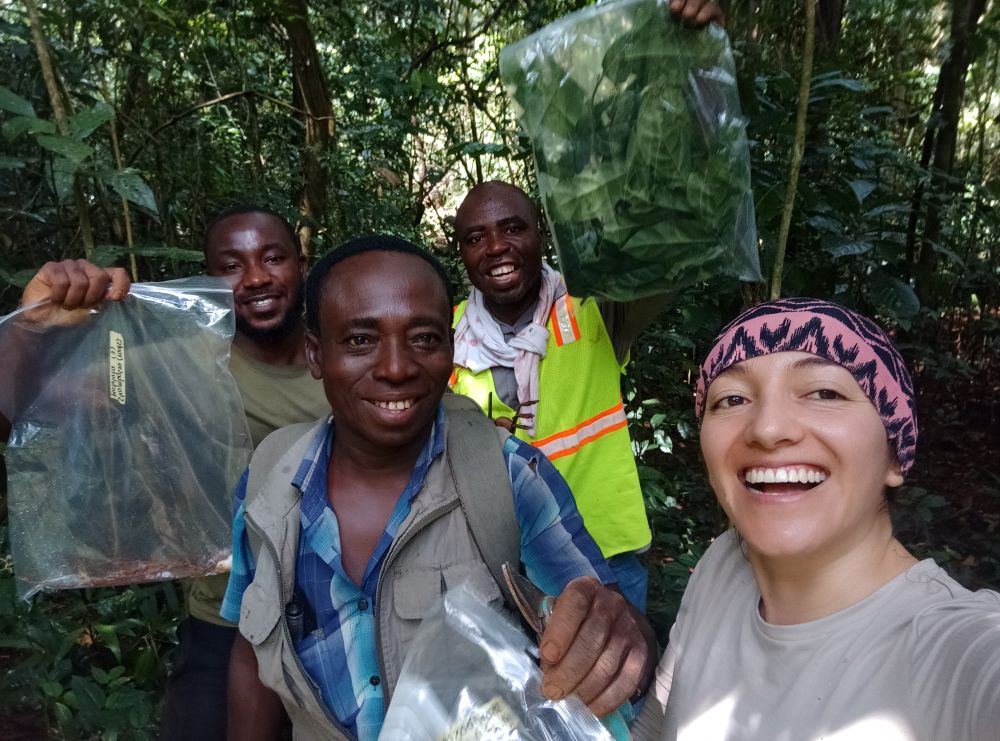
Our workgroup members Juni and Blanca had a successful expedition to Ghana where they sampled plant above- and below-ground traits for #TraitDivNet
macroecology.ut.ee/en/traitdivn...
05.12.2024 09:48 — 👍 12 🔁 1 💬 0 📌 0
Assistant Professor at the Department of Botany🌿 , Charles University.
Head of Laboratory of Quantitative Ecology (bit.ly/CUNI_QuantitativeEcology)
with a main focus on #communityecology 🏞️, #palaeoecology 🕰️, and interest in #datascience 💻.
Professor of Ecology & Botany at Federal University of Rio Grande do Sul/UFRGS, Brasil
www.ufrgs.br/segerlab
Macroecologist and biodiversity scientist studying multiple dimensions of biodiversity in a warming world @EEOB_OSU. She/her. jarzynalab.com
Led by Prof. Ingolf Steffan-Dewenter, we’re the 🐝-hive of biodiversity research at the University of Würzburg’s Biocenter, Germany 🇩🇪 From buzzing tropical forests to European farmlands, we decode how climate and land use changes shape the web of life.
Official account for Pl@ntNet https://plantnet.org/
Postdoc @ Tartu 🌍 | PhD @ ECNU 🌱
Into functional & community ecology — especially Intraspecific trait variation, plasticity, competition, and how species coexist.
Exploring the ecology of an increasingly human planet.
Prof. Geography & Environmental Systems, UMBC
Anthromes, Anthroecology & Anthropocene
https://anthroecology.org/people/ellis/
(he/him/his) Ecologist working on biodiversity-related questions | Climate change and range dynamics | Anything related to bugs | Editor-in-Chief @ESAMonographs
https://www.linkedin.com/in/jean-philippe-lessard-41a534109/
Showcasing new research from the publishing portfolio of the Ecological Society of America, the world's largest community of ecologists @ecologicalsociety.bsky.social
Academia Europaea, founded in 1988, is a European Academy of Humanities, Letters and Sciences with more than 5,500 members including 88 Nobel laureates.
Conservationist, ecologist, naturalist, author.
Journal of Ecology, a British Ecological Society journal, publishing original plant ecology research for a global audience
Cutting-edge research, news, commentary, and visuals from the Science family of journals. https://www.science.org
Plant community ecology, dispersal, landscape & climate change
Professor in Physical Geography
Passionate about teaching in the field
Ed-in-Chief/ecology @NordicJBotany
Splosh around with watercolour and watching 🪶 🐦🌿🦇
Views are personal
Nature Plants is an online-only, monthly journal publishing the best research on plants (hopefully).
Associate prof in plant ecology at Uppsala University, Sweden. Tropical forest dynamics, trait-based ecology, natural and anthropogenic disturbance...
Professor of Invasion Biology at UCL. Amateur father, birder, moth-er. Mainly post wildlife photos, occasionally science and politics. Author of The Jewel Box, winner of the ZSL Clarivate Award for Communicating Zoology.
Assistant professor at @UtrechtUniversity
Microclimate @SoilTemp
Mountains @MIREN
Citizen science @CurieuzeNeuzen and @DeOorzaak
Ecological scaling @EcoFracNet
Researching land-use change & how it impacts biodiversity at
Humboldt-Universität zu Berlin
Seeking to support biodiversity conservation.
Posts by
@tkuemmerle.bsky.social & team (check out our starterpack).
hu.berlin/biogeo
